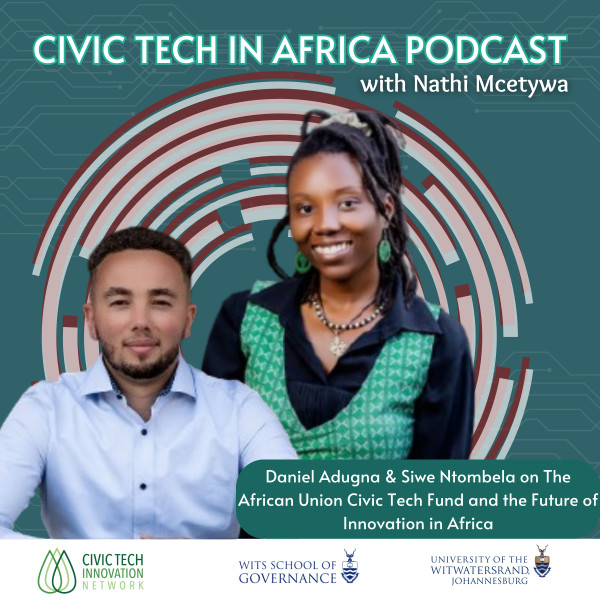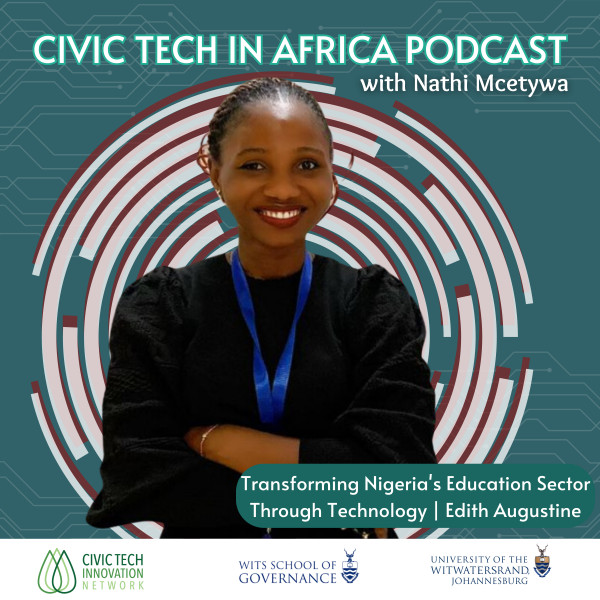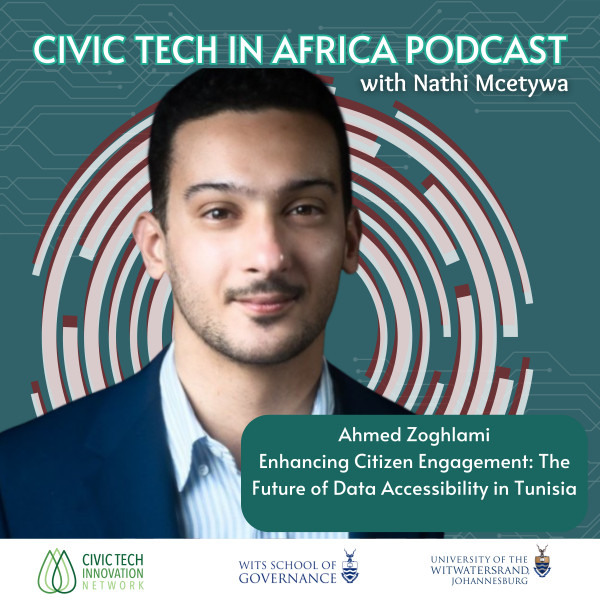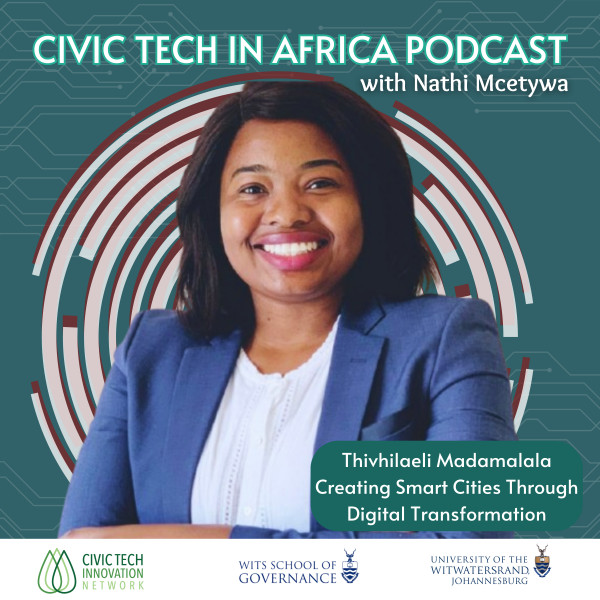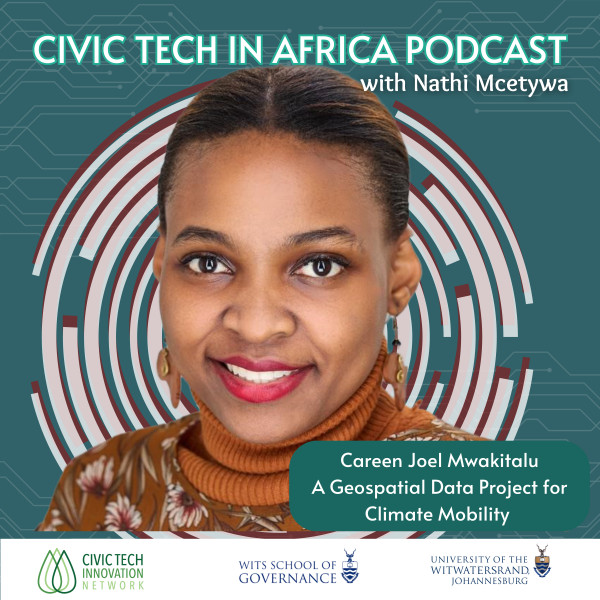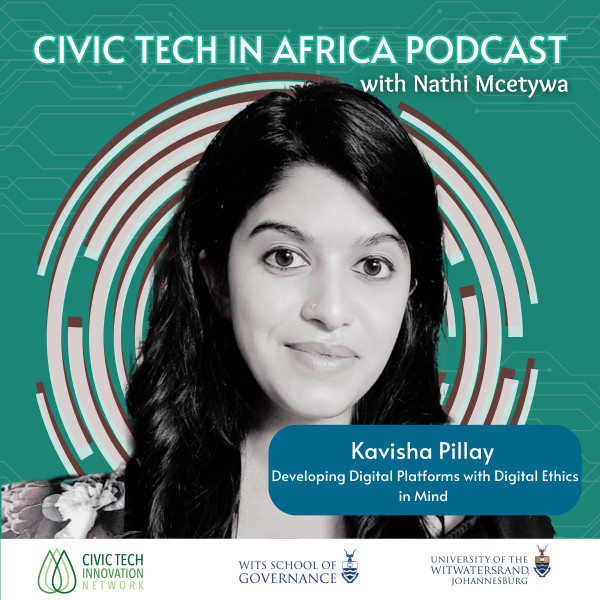
Developing Digital Platforms with Digital Ethics in Mind | Kavisha Pillay
--:--
In this episode, the host, Nathi Mcetywa, and guest, Kavisha Pillay discuss the impact of misinformation and disinformation on the democratic process, particularly during elections. They explore the role of social media platforms in combatting these campaigns and the need for ethical development of AI. They also discuss the challenges of identifying and combating disinformation, the importance of digital literacy, and the role of the free press in providing accurate information. The guest shares insights on the work of CODE in exploring the intersection of technology, human rights, and democracy, and their focus on promoting ethical AI and progressive regulation.
Keywords
misinformation, disinformation, social media platforms, democratic process, elections, AI, ethical development, digital literacy, free press, CODE, technology, human rights, democracy, progressive regulation
Takeaways
Misinformation and disinformation campaigns are a significant threat to the democratic process, particularly during elections.
Social media platforms have a responsibility to combat these campaigns and change their algorithms to prevent the amplification of false information.
Developers of AI applications should prioritize ethical development and consider the potential biases and harm that their technology may cause.
Digital literacy is essential for individuals to critically evaluate information and verify its accuracy before sharing.
The free press plays a crucial role in providing accurate information and countering disinformation, but there is a need to rebuild trust and find sustainable funding models.
Progressive regulation is necessary to address the challenges posed by disinformation and ensure the protection of freedom of speech and expression.
Titles
The Role of the Free Press in Providing Accurate Information
The Role of Social Media Platforms in Combatting Disinformation
Sound Bites
"Social media can be used to polarize our societies and spread disinformation to persuade people to vote in particular ways."
"Recommendation systems and algorithms on social media platforms keep users scrolling and can amplify disinformation."
"Disinformation can have real-world consequences, and tech companies need to take responsibility for their role in creating this crisis."
Chapters
00:00
Introduction and the Impact of Misinformation on Elections
02:09
Guest Introduction: Kavisha Pillay and the Work of CODE
04:01
The Role of Social Media Platforms in Combatting Disinformation
08:30
Ethical Development of AI and the Need for Progressive Regulation
15:05
The Importance of Digital Literacy in Identifying Disinformation
35:24
The Work of CODE in Promoting Ethical AI and Progressive Regulation
Keywords
misinformation, disinformation, social media platforms, democratic process, elections, AI, ethical development, digital literacy, free press, CODE, technology, human rights, democracy, progressive regulation
Takeaways
Misinformation and disinformation campaigns are a significant threat to the democratic process, particularly during elections.
Social media platforms have a responsibility to combat these campaigns and change their algorithms to prevent the amplification of false information.
Developers of AI applications should prioritize ethical development and consider the potential biases and harm that their technology may cause.
Digital literacy is essential for individuals to critically evaluate information and verify its accuracy before sharing.
The free press plays a crucial role in providing accurate information and countering disinformation, but there is a need to rebuild trust and find sustainable funding models.
Progressive regulation is necessary to address the challenges posed by disinformation and ensure the protection of freedom of speech and expression.
Titles
The Role of the Free Press in Providing Accurate Information
The Role of Social Media Platforms in Combatting Disinformation
Sound Bites
"Social media can be used to polarize our societies and spread disinformation to persuade people to vote in particular ways."
"Recommendation systems and algorithms on social media platforms keep users scrolling and can amplify disinformation."
"Disinformation can have real-world consequences, and tech companies need to take responsibility for their role in creating this crisis."
Chapters
00:00
Introduction and the Impact of Misinformation on Elections
02:09
Guest Introduction: Kavisha Pillay and the Work of CODE
04:01
The Role of Social Media Platforms in Combatting Disinformation
08:30
Ethical Development of AI and the Need for Progressive Regulation
15:05
The Importance of Digital Literacy in Identifying Disinformation
35:24
The Work of CODE in Promoting Ethical AI and Progressive Regulation
